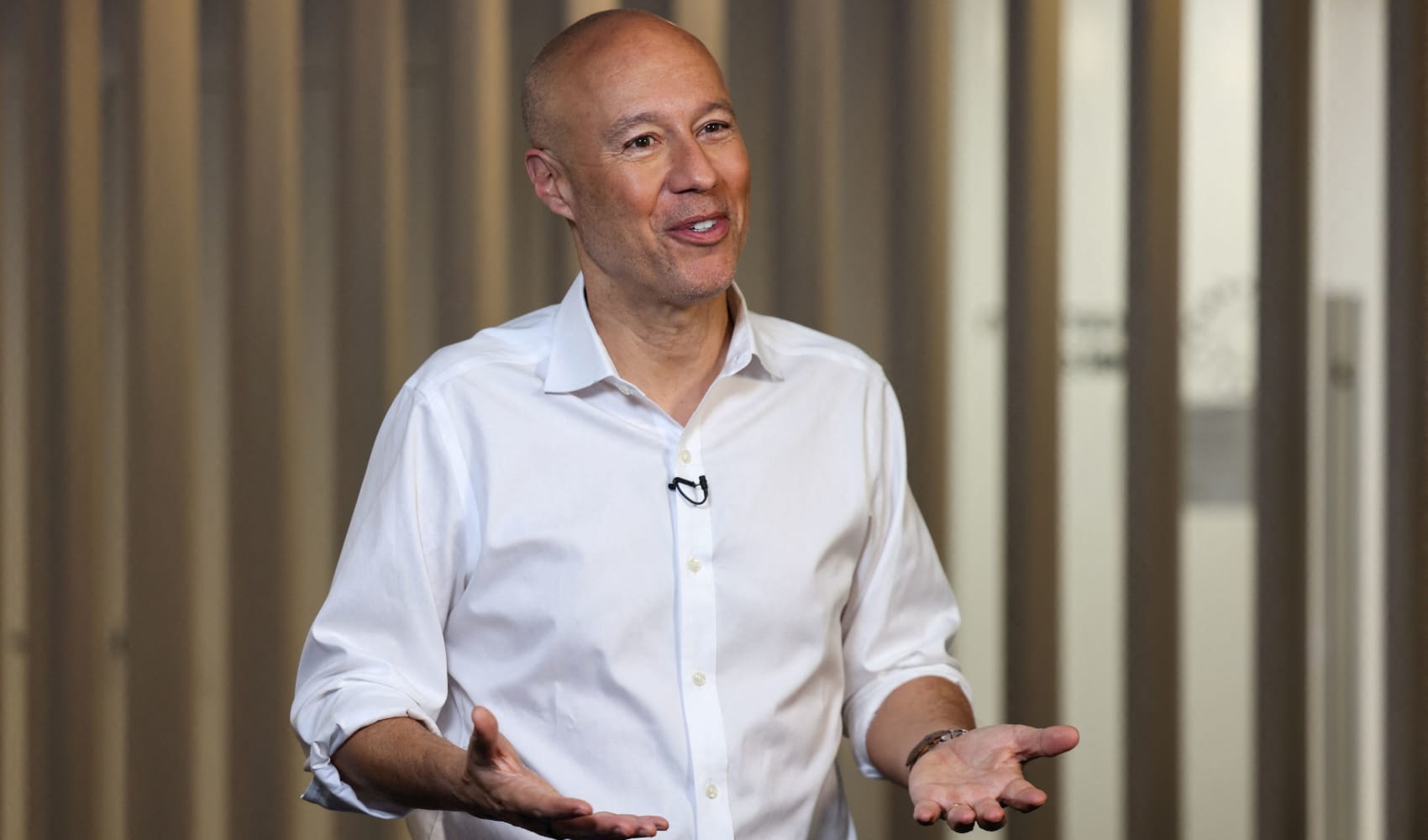Lyft Skyrockets! Buyback & Bookings Growth Explained
Lyft Soars: Buyback and Bookings Growth Fuel 28% Stock Surge
Introduction: Buckle Up for Lyft's Impressive Ride
Lyft's recent performance has been nothing short of a rollercoaster, but in a good way! The ride-sharing company just gave investors a reason to cheer, with its stock price leaping an impressive 28% after announcing a boosted share buyback program and reporting robust gross bookings growth. But what's driving this surge, and is it a sign of smoother roads ahead for Lyft? Let's dive into the details and find out!
Lyft's Buyback Bonanza: $750 Million Boost
One of the biggest drivers of the stock surge was Lyft's decision to ramp up its share buyback plan. The company has increased its buyback program to a whopping $750 million. What does this mean? Essentially, Lyft is using its cash to purchase its own shares in the market. This can have several positive effects, including reducing the number of outstanding shares, which can increase earnings per share and boost the stock price.
Why a Buyback? Confidence and Value
Why would Lyft choose to buy back its own shares? It signals confidence in the company's future prospects. It's like Lyft saying, "We believe our stock is undervalued, and we're investing in ourselves." It also creates artificial demand for the stock, which helps push the price higher. Think of it like this: it's like Lyft is having a huge sale on its own stock, and everyone wants to get in on the action!
Gross Bookings Growth: A 16-Quarter Streak
Beyond the buyback, Lyft's impressive gross bookings growth is another key factor fueling its stock surge. The company proudly announced that this quarter marks its 16th consecutive period of gross bookings growth. In simple terms, this means that more people are using Lyft to book rides, which translates to more revenue for the company.
What are Gross Bookings?
Gross bookings represent the total value of all rides booked through the Lyft platform. It's a key indicator of the company's overall health and growth trajectory. A consistent increase in gross bookings suggests that Lyft is successfully attracting and retaining riders.
David Risher's Optimistic Outlook: "Nothing to Worry About"
Adding to the positive sentiment, Lyft CEO David Risher shared an optimistic outlook during an interview with CNBC's "Squawk Box." He stated that the company isn't seeing "anything to worry about" with the consumer. This is a crucial point, as consumer spending is a significant driver of the economy.
Decoding Risher's Statement: Consumer Confidence is Key
Risher's statement suggests that people are still willing to spend money on transportation services like Lyft, even amidst economic uncertainty. This indicates that Lyft's services are considered essential or valuable enough for consumers to prioritize them. In other words, even when budgets are tight, people are still choosing to hail a Lyft.
Competition with Uber: Still a Two-Horse Race?
The ride-sharing market is essentially dominated by two players: Lyft and Uber. While Uber maintains a larger market share, Lyft's recent performance shows that it's still a formidable competitor. The two companies constantly battle for riders and drivers, introducing new features and incentives to gain an edge.
Lyft's Strategies to Compete: Focus and Innovation
Lyft's strategy seems to be focused on specific niches and innovative offerings. They are constantly trying to improve the rider and driver experience. We will continue to see if they will innovate more in the future.
Profitability: The Elusive Goal
While revenue and bookings are growing, the big question is always about profitability. Can Lyft consistently generate profits and demonstrate long-term financial sustainability? The buyback program and Risher's comments would point towards a positive outlook.
The Path to Profitability: Cost Control and Efficiency
For Lyft to achieve sustained profitability, they need to focus on cost control, operational efficiency, and pricing strategies. This involves optimizing their driver network, reducing expenses, and ensuring that they are charging competitive prices while maintaining healthy margins.
The Impact of External Factors: Economic Conditions and Fuel Prices
Like any business, Lyft's performance is also influenced by external factors, such as economic conditions and fuel prices. A strong economy typically translates to more demand for ride-sharing services, while high fuel prices can increase operating costs for drivers and potentially impact riders' fares.
Navigating Economic Headwinds: Adaptability is Crucial
Lyft must be able to adapt to changing economic conditions and manage the impact of fluctuating fuel prices. This could involve implementing dynamic pricing models, offering incentives to drivers to offset fuel costs, and exploring alternative fuel options.
The Future of Ride-Sharing: Autonomous Vehicles and Beyond
Looking ahead, the ride-sharing industry is poised for significant transformation, with the potential for autonomous vehicles to revolutionize the way people get around. While the widespread adoption of self-driving cars is still years away, it represents a long-term opportunity for companies like Lyft to reduce costs and improve efficiency.
Embracing Innovation: Staying Ahead of the Curve
Lyft needs to continue investing in research and development, exploring partnerships with autonomous vehicle companies, and preparing for a future where self-driving cars are a common sight on our roads.
Investing in Lyft: Weighing the Risks and Rewards
The 28% stock surge is undoubtedly positive news for Lyft and its investors. However, it's important to remember that investing in the stock market always involves risks. It's crucial to conduct thorough research, consider your own investment goals and risk tolerance, and consult with a financial advisor before making any investment decisions.
Due Diligence is Key: Understanding the Market and the Company
Before investing in Lyft, take the time to understand the ride-sharing market, the company's competitive landscape, its financial performance, and its future growth potential. Look for independent research reports, read analyst opinions, and stay informed about the latest news and developments related to the company.
Driver Satisfaction: A Crucial Element for Success
The success of Lyft's business model depends heavily on the availability and satisfaction of its drivers. Drivers are the backbone of the platform, and their experience directly impacts the quality of service that riders receive. Happy drivers are more likely to provide reliable and efficient rides, leading to increased rider satisfaction and loyalty.
Supporting Drivers: Fair Compensation and Benefits
Lyft needs to prioritize driver satisfaction by offering fair compensation, providing benefits such as health insurance or paid time off, and creating a supportive and inclusive work environment. Investing in driver well-being will ultimately lead to a stronger and more sustainable business.
Regulatory Scrutiny: Navigating Legal Challenges
The ride-sharing industry is subject to regulatory scrutiny in many cities and states. Regulators are focused on issues such as driver safety, insurance coverage, and consumer protection. Lyft needs to navigate these legal challenges and ensure that it is operating in compliance with all applicable laws and regulations.
Working with Regulators: Building Positive Relationships
Lyft should proactively engage with regulators, building positive relationships and working collaboratively to address concerns. By demonstrating a commitment to safety, transparency, and responsible business practices, Lyft can help shape the regulatory landscape in a way that supports innovation and growth.
Lyft's Marketing Efforts: Building Brand Awareness and Loyalty
In a competitive market, effective marketing is essential for building brand awareness and loyalty. Lyft needs to continue investing in marketing campaigns that highlight its unique selling points, such as its focus on customer service, its commitment to sustainability, or its community involvement.
Creating a Strong Brand Identity: Differentiation is Key
Lyft should strive to create a strong brand identity that differentiates it from competitors and resonates with its target audience. This involves developing a consistent brand message, using creative advertising campaigns, and leveraging social media to engage with customers and build a loyal following.
Conclusion: A Promising Turn for Lyft
Lyft's recent surge in stock price, fueled by its increased buyback program and impressive gross bookings growth, paints a promising picture for the company. CEO David Risher's positive outlook further reinforces this sentiment. While challenges remain, including competition with Uber, the path to profitability, and regulatory hurdles, Lyft appears to be navigating these obstacles effectively. It will be interesting to watch how Lyft continues to adapt and innovate in the ever-evolving ride-sharing landscape.
Frequently Asked Questions
- What does Lyft's share buyback program mean for investors?
It suggests that Lyft believes its stock is undervalued and is confident in its future prospects. It can also increase earnings per share and boost the stock price.
- How is Lyft different from Uber?
While both are ride-sharing companies, Lyft often focuses on specific niches and innovative offerings to compete with Uber's larger market share.
- What are gross bookings, and why are they important?
Gross bookings represent the total value of all rides booked through Lyft. They are a key indicator of the company's overall health and growth trajectory.
- What factors could negatively impact Lyft's performance in the future?
Economic downturns, high fuel prices, increased competition, and regulatory changes could all negatively impact Lyft's performance.
- How is Lyft addressing the issue of driver satisfaction?
Lyft is working on offering fair compensation, providing benefits such as health insurance, and creating a supportive work environment to improve driver satisfaction.

